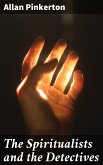In "The Lost House," Richard Harding Davis transports readers into a richly woven narrative centered around a mysterious estate that serves as a microcosm of early 20th-century American society. With a keen eye for detail, Davis employs his signature vivid prose and a blend of realism and romanticism to depict themes of loss, memory, and the passage of time. The story unfolds through intricately developed characters, each reflecting the complexities of human relationship within the constraints of societal expectations, making it a quintessential work of its time. Richard Harding Davis, an esteemed journalist and fiction writer, was deeply influenced by the changing landscapes of America and the shifting values of the Gilded Age. His experiences travelling and reporting from various socio-political contexts infused his writing with a depth that resonates throughout "The Lost House." Davis's affinity for historical detail and his understanding of human nature underscore his desire to illuminate the societal flaws and emotional truths of his era, making this novel both a personal and cultural exploration. This novel is highly recommended for readers interested in the interplay between physical space and emotional narrative. Its thoughtful exploration of loss and belonging, coupled with Davis's masterful storytelling, presents a compelling read that invites reflection on the past while resonating with contemporary themes.
Dieser Download kann aus rechtlichen Gründen nur mit Rechnungsadresse in A, B, BG, CY, CZ, D, DK, EW, E, FIN, F, GR, H, IRL, I, LT, L, LR, M, NL, PL, P, R, S, SLO, SK ausgeliefert werden.









